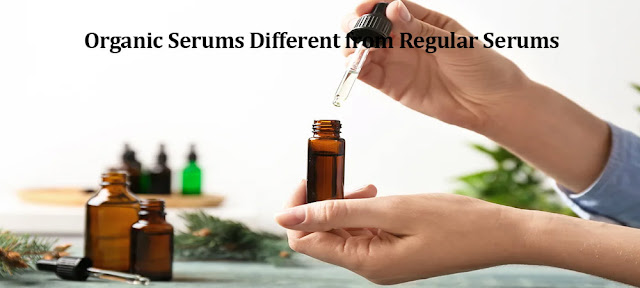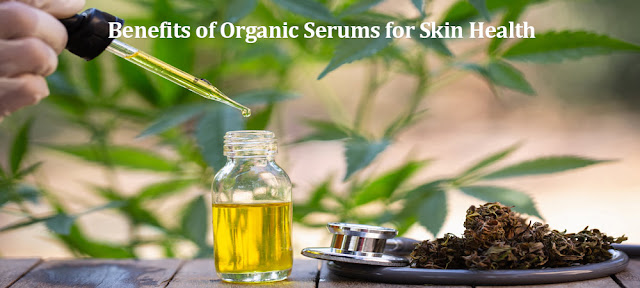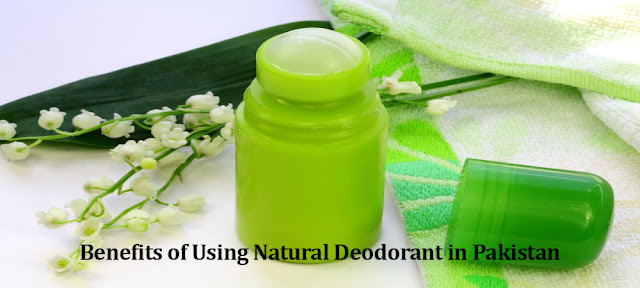The Science Behind Organic Serum: How It Benefits Your Skin
In recent years, organic skincare products have gained immense popularity, and among them, organic serums have taken center stage. These potent elixirs offer a plethora of benefits for the skin, promising to address various skin concerns and improve overall skin health. This article delves into the science behind organic serums and highlights the remarkable benefits they offer for your skin.
Understanding Organic Serums
What are Organic Serums?
Organic serums are concentrated skincare products that contain high levels of active, natural ingredients. Unlike regular serums that may incorporate synthetic compounds, organic serums are crafted using plant-based extracts, essential oils, and other organic components.
How are Organic Serums Different from Regular Serums?
The primary distinction lies in their formulation. Organic serums steer clear of harsh chemicals, parabens, and synthetic fragrances that are commonly found in conventional serums. This makes organic serums gentler on the skin and reduces the risk of irritation or adverse reactions.
The Science Behind Organic Serums
The effectiveness of organic serums can be attributed to the synergy of their natural ingredients. These formulations are backed by scientific research, which supports the positive impact of various botanical extracts on skin health. For instance, studies have shown that ingredients like hyaluronic acid, vitamin C, retinol, and peptides can significantly improve skin texture, elasticity, and hydration levels.
Key Ingredients in Organic Serums
Hyaluronic Acid
Hyaluronic acid is a powerful humectant naturally present in the skin. It has the ability to attract and retain moisture, making it a vital ingredient in organic serums. By deeply hydrating the skin, hyaluronic acid helps plump up fine lines and wrinkles, giving your skin a youthful and radiant appearance.
Vitamin C
Vitamin C serum is a potent antioxidant that helps protect the skin from free radical damage caused by environmental stressors. Additionally, it stimulates collagen production, promoting firmer and more resilient skin.
Retinol
Retinol, derived from vitamin A, is renowned for its anti-aging properties. It helps accelerate cell turnover, reducing the appearance of wrinkles, fine lines, and age spots.
Peptides
Peptides are amino acid compounds that aid in collagen synthesis, reinforcing the skin's structure and promoting a smoother complexion.
Benefits of Organic Serums for Skin Health
Deep Hydration and Moisturization
One of the primary advantages of organic Vitamin C serums is their ability to provide intense hydration to the skin. They penetrate deep into the skin's layers, delivering essential nutrients and locking in moisture, resulting in plumper and more supple skin.
Anti-Aging Properties
Organic serums, packed with antioxidants and anti-aging ingredients like retinol and vitamin C, can visibly reduce the signs of aging. Regular use can help diminish fine lines, wrinkles, and age spots.
Improved Skin Texture and Tone
The potent blend of organic ingredients in serums contributes to a smoother skin texture and a more even skin tone. This can be particularly beneficial for individuals dealing with acne scars or hyperpigmentation.
Reduced Inflammation and Irritation
Organic Vitamin C serums often contain botanical extracts known for their anti-inflammatory and soothing properties. This makes them suitable for sensitive skin and helps reduce redness and irritation.
How to Choose the Right Organic Serum for Your Skin
Skin Type Considerations
Consider your skin type and specific concerns when selecting an organic serum. Some serums may be better suited for dry skin, while others are formulated for oily or acne-prone skin.
Ingredient Analysis
Read the product label to understand the key ingredients in the serum. Look for serums containing ingredients that address your skin concerns effectively.
Product Reviews and Recommendations
Take advantage of customer reviews and recommendations to gain insights into the effectiveness of a particular organic serum. Real-life experiences can help you make an informed decision.
Incorporating Organic Serums into Your Skincare Routine
Cleansing and Prepping Your Skin
Before applying the organic serum, ensure your skin is clean and free from impurities. Cleansing and toning create a smooth canvas for the serum to work its magic.
Applying the Organic Serum
Follow the instructions provided by the manufacturer for the correct application of the organic serum. Gently massage it into your skin using upward strokes.
Layering with Other Skincare Products
Organic serums can be integrated into your existing skincare routine. Layer them with other products like moisturizers and sunscreens for enhanced results.
Organic Serum DIY Recipes
Hydrating DIY Organic Serum
Create a hydrating organic serum at home by blending aloe vera gel, rosehip oil, and a few drops of lavender essential oil. This soothing concoction will keep your skin hydrated and calm.
Anti-Aging DIY Organic Serum
Mix argan oil, pomegranate seed oil, and frankincense essential oil to create an anti-aging organic serum that targets fine lines and promotes youthful-looking skin.
Nourishing DIY Organic Serum
Combine jojoba oil, chamomile essential oil, and vitamin E oil to create a nourishing organic serum that revitalizes dull and tired skin.
Addressing Common Misconceptions About Organic Serums
Organic Serums are Expensive
While some organic serums may have higher price points, they often offer better results and are worth the investment in your skin's health.
Organic Serums Don't Work as Well as Chemical Serums
Organic serums can be just as effective, if not more, than their chemical counterparts, especially for those with sensitive skin.
Organic Serums are Only for Specific Skin Types
There are organic serums available for all skin types and concerns, making them suitable for a broad audience.
Tips for Maximizing the Benefits of Organic Serums
Consistency is Key
For noticeable results, use organic serums consistently as part of your daily skincare routine.
Patch Test Before Use
Perform a patch test on a small area of your skin before applying the serum all over your face to check for any allergic reactions.
Store Your Serum Properly
Store your organic serum in a cool, dark place to maintain its potency and efficacy.
Avoid Harmful Ingredients
Be mindful of harmful ingredients like parabens, sulfates, and synthetic fragrances, which can negate the benefits of an organic serum.
The Future of Organic Skincare
The future of organic skincare looks promising, with ongoing research and advancements in natural ingredients. As consumers become more conscious of what they put on their skin, the demand for organic serums and other clean beauty products is likely to rise.
Conclusion
Le Pur Organics Organic serums have carved a niche for themselves in the skincare industry with their remarkable benefits and natural formulations. These potent elixirs offer deep hydration, anti-aging properties, and improved skin texture. By incorporating organic serums into your skincare routine and making informed choices, you can achieve healthy, radiant, and youthful-looking skin.
FAQs
Q: Are organic serums suitable for all skin types?
A: Yes, there are organic serums formulated for different skin types, making them suitable for everyone.
Q: Can organic serums replace moisturizers?
A: While organic serums provide deep hydration, it's still essential to use a moisturizer to lock in the serum's benefits.
Q: How often should I use an organic serum?
A: For optimal results, use an organic serum twice daily, in the morning and evening.
Q: Can I use multiple serums in my skincare routine?
A: Yes, you can layer different serums to address specific skin concerns effectively.
Q: Are organic serums tested on animals?
A: Reputable organic skincare brands prioritize cruelty-free practices and do not test their products on animals.





Comments
Post a Comment